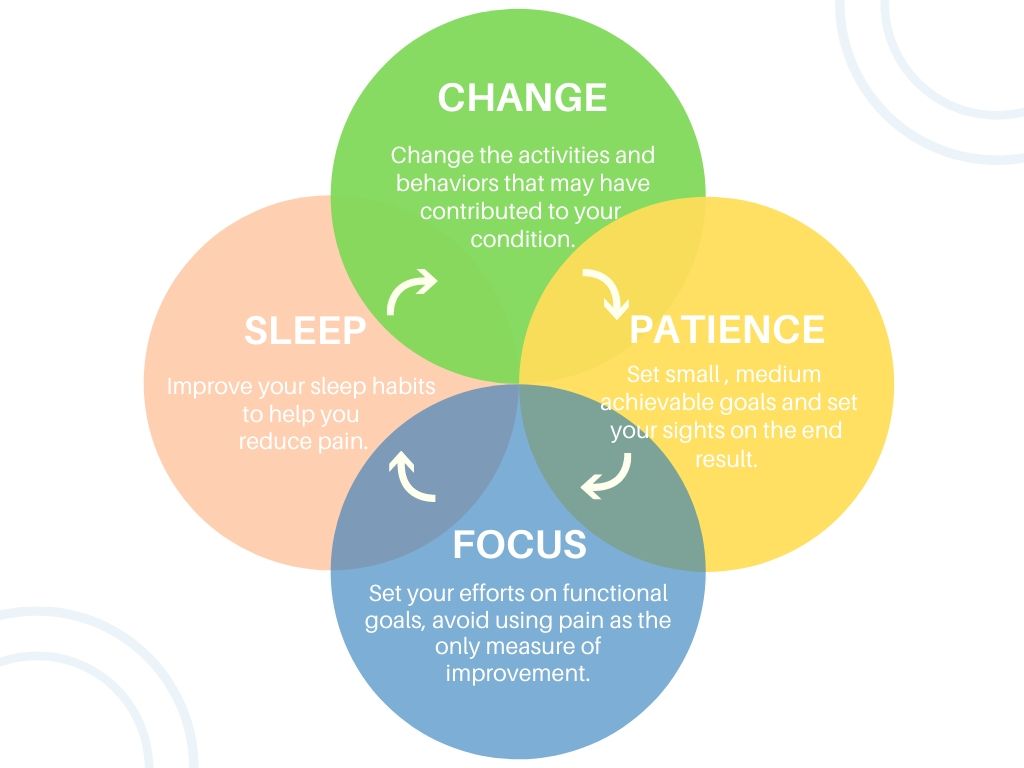
Moving away from pain and toward progress
The rehabilitation journey can be filled with ups and downs - hopefully, more ups than downs! Sometimes the speedbumps can be mistaken for a stop sign when there is a flare-up or motivation wanes. Whether you are recovering from surgery, an ankle sprain, a rotator cuff injury or Achilles tendinopathy, there are some universal truths when it comes to the rehabilitation journey:
- Change: Often change is required, this may be in doing more or doing less, or doing something slightly different. If you are used to doing plenty, this change may be frustrating, but remember it is hopefully only momentary. Alternately, if you aren’t accustomed to doing exercises and fitting them into your day, discuss with your physiotherapist how you can modify your day to tweak this. James Clear talks about the 3 R’s of habit change: Reminder, Routine and Reward. Often, some useful ways include structuring your exercise around something that is habitual for you and will remind you to do your exercises. For example, doing your rehabilitation exercises after breakfast is a way of using your routine as a reminder. You can decide on your reward, but hopefully, over several weeks you will notice changes in strength and function!
- Patience: Try not to be hard on yourself, the rehabilitation journey can seem long if you are looking at start and endpoints. Goal setting will be an important factor in your rehabilitation journey. In doing this, you can also set some short and medium-term goals. This will help you not lose sight of the smaller changes and progress you have made along the way.
- Focus: It can be tempting to measure things in terms of pain and what you can’t do. As much as possible, try to focus on function and the smaller things you are able to do overtime. There are many things that we can measure during your rehabilitation journey and where possible, the functional measures (For example, returning to walking or running, or cooking etc) that are important to you, are the ones that are important to us!
- Sleep: Explore ways to get a good night's sleep. If pain is interrupting your sleep, have a discussion with your physiotherapist about how to address any factors surrounding this. There is a positive link between the effects of recovery sleep and our experience of pain (Stroemel-Scheder et al, 2020).
Finally, the important point to remember in this journey is that you are supported by the Physica team.
Use us as a part of your support network, your cheering team and your resource for the questions that you have (try to avoid the temptation of Google). We are here for you to help you get the most out of your body and enjoy it along the way!
References:
Stroemel-Scheder, C., Kundermann, B., & Lautenbacher, S. (2020). The effects of recovery sleep on pain perception: A systematic review. Neuroscience and Biobehavioral Reviews, 113, 408-425.
